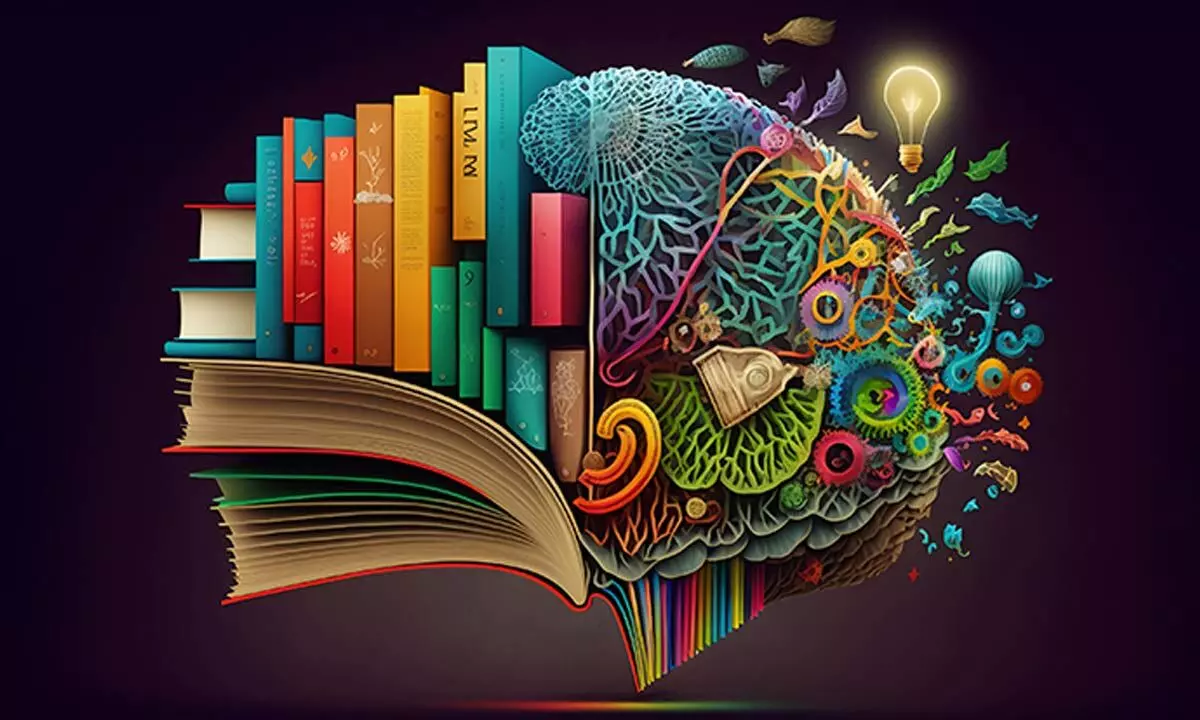Ensuring innovation through liberal arts education

Liberal arts education exposes students to wide range of subjects which further allow them to think across disciplines while solving problems and making decisions Several benefits of a liberal arts education has been found that enhances creativity, innovation and flexible thinking in students.
Liberal arts education is important. It is a lifelong learning that teaches student to process information analytically and critically. While there is a huge demand on technical skills. Liberal arts education exposes students to wide range of subjects which further allow them to think across disciplines while solving problems and making decisions Severalbenefits of a liberal arts education has been found that enhances creativity, innovation and flexible thinking in students.
These range from-Interactive classes where students from different courses come together, brainstorm and form deeper connections. More questions are encouraged and during group projects more divergent solutions are identified.
This increase creativity and innovation in students.Collaborativeway to learning – The agenda of liberal arts education is to intentionally align varied areas of study together by exposing students to a wide range of subjects. Such as management students take classes in the arts and can also take up classes in sociology.
Business majors will have classes in the arts, while pre-med majors may get a taste of sociology. Since majority of liberal arts classes are of relatively small size, it is easy to create cohesive, close and intimate “family” which paves way for multiple discussions, personalizedindividual learning experiences and growth opportunities. This also facilitates strong Alumni connect which leads to students stay in touch with the campus further necessitating lifelong friendships and supports. Small size class also makes the learner know the faculty well. Increased faculty interaction enables identification of self since the students get to know their strengths, weaknesses and threats. Feedback and mentorship is easy and manageable.
Students often during interactions also get exposed to new experiences and concepts that are away from their core theoretical or technical knowledge. During teaching and learning students risk taking is promoted for them to try and venture new things. Peer reviewed learning are facilitated and since the students are from diverse fields, majority proposes divergent and innovative approach to learning. Liberal education curriculum by letting students take up courses in field different from their core area focus on how and what to think. This inevitably makes the college life more meaningful since many valuable skills that are necessary are taught to students which stimulates critical and analytical thinking skills.
Another key benefit of this integrative style of learning is the job placement rates. Many employers are now looking for students who are armed with several soft skills and additional knowledge along with core job skills.
They are actively looking for people who can smartly solve problems. With the liberal education one can find these students ready for industry. Also since many liberal arts students are prepared to think,connect, create and produce with out of the box solutions, many become entrepreneurs, this has further increased the job opportunities and creative job skills.
Lastly, many students with diverse knowledge also learn civil and social responsibility. They are open for community engagement and are motivated to make world a better place. Hence liberal education transform students and make them into a curious, proactive and challengers. The education is aimed at teaching them navigate through simple challenges to more complex challenges.
(The author is Vice Chancellor, IILM University, Gurugram)








